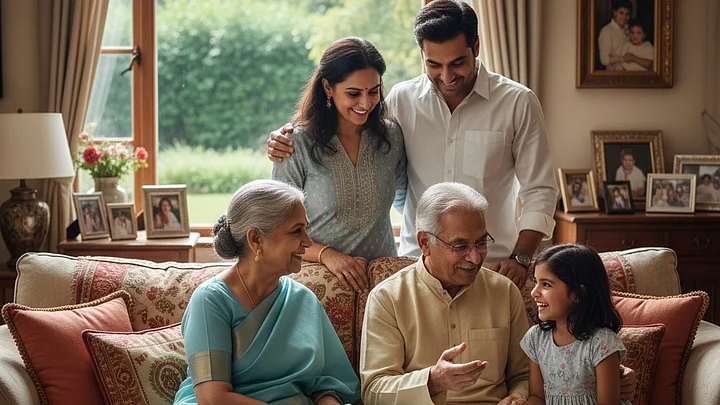If you’re in your late 30s or 40s, constantly juggling between taking care of your parents while planning your own future, congratulations, you’re part of the sandwich generation!
The term 'sandwich generation' was coined in 1981 by Dorothy A. Miller, a social worker and professor to describe adults who were “sandwiched” between two generations of dependents- their children and their parents. Back then, it might have sounded like a niche sociological label. Today, it feels more like a lifestyle diagnosis.
Always on, always responsible
One of the under-discussed truths about Indian middle-class life is that we often inherit not just our parents’ values but also their vulnerabilities. Many of them worked in an era without pensions or solid retirement plans. They trusted their children to become their safety net.
For most urban professionals, the script goes something like this: wake up, answer a few work emails before breakfast, drop your kid to school, check on your parents’ blood reports, join back-to-back meetings, squeeze in a gym session, and try to make a mental note to research some money-saving schemes over the weekend.
Except the weekend never comes. What does come are EMIs, rising medical costs, and that uneasy feeling of being financially stretched despite doing everything right. You’re earning decently, paying taxes, maybe even investing in SIPs. But the to-do list of financial responsibilities seems to be outgrowing your salary.
This is what makes the sandwich generation unique. You’re not broke but not secure either. You’re doing fine until one unexpected hospitalisation or job loss threatens to unravel the delicate balance you’ve built.
Being the middle layer
Money conversations in most Indian families are still layered with guilt and emotion. Your parents may not have had insurance or retirement savings, but they did everything they could to give you stability. Now, as they age, the instinct is to return the favour.
At the same time, you’re aware of your own future pressing in- home loans, school fees and that haunting question- am I saving enough for retirement? It’s a strange place to be in. You’re proud to be dependable, but you’re also tired. And often, you’re doing it all alone.
According to a recent survey by Watch Wealth, 50% of women and 39% of men admitted to sacrificing their mental health to tend to family responsibilities. Both men and women in the sandwich generation often bear the burden of managing their jobs, financial strain, children's education and caring for elderly parents.
Which is why financial planning for this generation is a non-negotiable. The fewer things you have to worry about each month, the more space you have for things that actually matter.
Understanding financial security
The mistake most middle-class professionals make is assuming that financial security means getting high returns. We chase the next big stock or mutual fund trend, spend hours tracking markets and feel oddly productive while doing it. But when you’re responsible for two generations, the real win lies in having the guarantee that part of your money will be there when you need it.
Many financial planners now recommend a blend of growth and safety, keeping your market-linked investments for long-term gains while ring-fencing a portion of your income for guaranteed returns.
That’s where products like HDFC Life Sanchay Plus come in. It’s designed for people exactly who are walking on the tightrope between providing for today and preparing for tomorrow.
Here are some of its features:
Life cover to protect the family's future.
Steady retirement income with a life-long income option.
Guaranteed benefit payouts.
Guaranteed income for a fixed term of 10, 12, 25, 30 years or lifelong.
The middle ground
Maybe the point isn’t to escape the sandwich generation, but to make peace with it. To accept that responsibility doesn’t have to mean stress, not if you build systems that work quietly in the background.
In a country that glorifies self-sacrifice and savings jars, maybe the most radical thing the sandwich generation can do is plan sustainably. There’s no one-size-fits-all solution but having a strong financial foundation can ensure that when life pulls you in two directions, your finances don’t split under pressure. Because the truth is, being the one who holds it all together doesn’t have to break you, not if you plan for it smartly.
